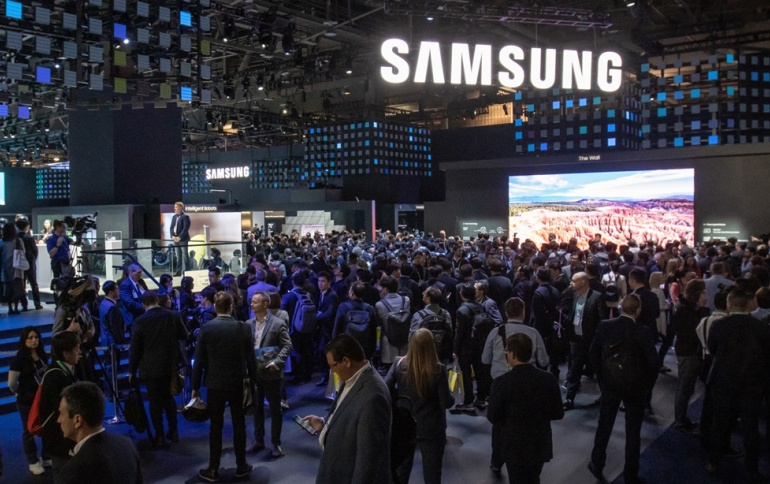
Samsung Electronics Expects Better Than Expected Profit, Sees Memory Market Recovery
Samsung Electronics on Wednesday said quarterly operating profit likely fell less that analysts forecast, expecting a recovery from an industry downturn.
Samsung, the world’s biggest maker of memory chips, has seen earnings drop since late 2018 as a weak global economy curbed spending by data center customers while rising inventories squeezed prices.
But the company hopes that positive developments in the China-U.S. trade war will result in a return of the demand later this year from server customers and makers of fifth-generation (5G) network-ready smartphones.
“There are signs that make us believe the market is recovering,” said Kim Ki-nam, vice chairman of the tech giant’s semiconductor business on Tuesday.
“However, it is difficult to predict how much the market would recover or which factors would play a role.”
“We will decide in accordance with changing market conditions and our schedule (for businesses),” he added.
Regarding the possibility of the second line churning out cutting-edge NAND flash chips, Kim said, “The decision will also depend on market conditions.”
Samsung said it expected to report later this month a 34% drop in operating profit at 7.1 trillion won ($6.04 billion) for its fourth quarter ended Dec. 31 versus the same period a year earlier.
The company's revenue declined 0.5% to 59 trillion won.
Annual operating profit likely fell 53% to 27.7 trillion won, the lowest since 2015 and steepest decline in a decade.
Samsung did not break down performances of its respective business divisions, saying it will announce the detailed earnings later this month.
Contract prices for 8-gigabyte DRAM server modules, mostly used for PCs, held steady for the last three months of 2019, according to market tracker DRAMeXchange. NAND flash contract market prices posted a 10 percent on-year increase in December, according to the tracker.
The mobile division was also expected to have logged improved results during the fourth quarter on the back of strong sales of its premium smartphones, including the Galaxy Note 10 and the Galaxy Fold.
Samsung is estimated to have shipped some 70 million smartphone units for the quarter.
Samsung Electronics' home appliance business might have rebounded thanks to solid sales of its premium QLED TVs products.
However, Samsung's display business unit is believed to have earned an operating income of 500 billion won, nearly halved from a quarter earlier due to falling LCD prices.
Samsung is spending more on the development of flexible organic light-emitting diode panels for smartphones, hoping to maintain its lead in the mobile display market. But its older LCD business shut some facilities after panel prices collapsed in the face of competition from Chinese suppliers such as BOE Technology Group Co.





















